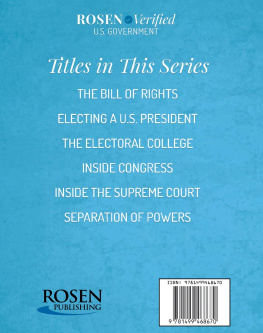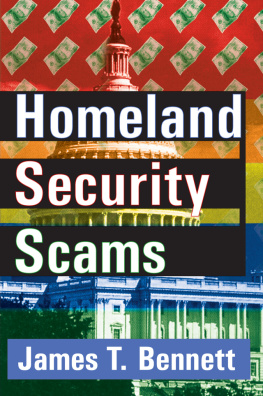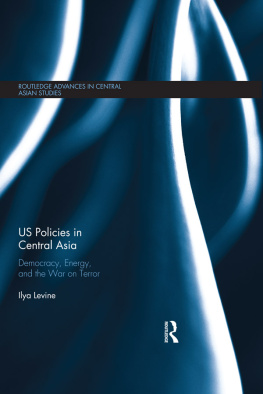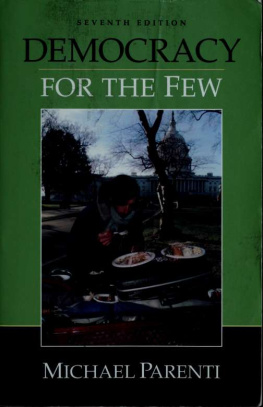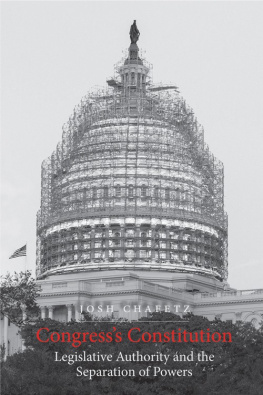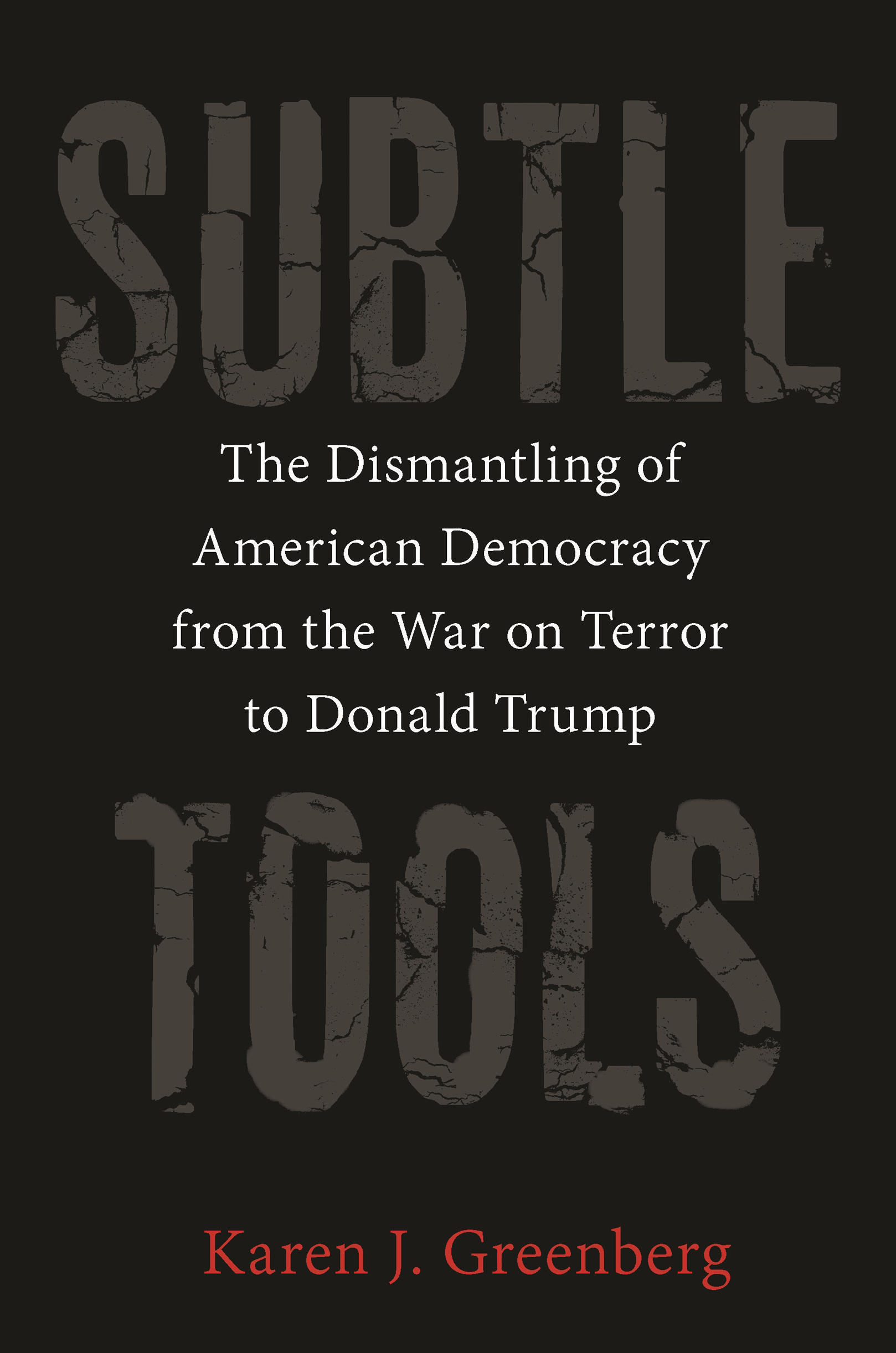SUBTLE TOOLS
Subtle Tools
THE DISMANTLING OF AMERICAN DEMOCRACY FROM THE WAR ON TERROR TO DONALD TRUMP
KAREN J. GREENBERG
PRINCETON UNIVERSITY PRESS
PRINCETON & OXFORD
Copyright 2021 by Princeton University Press
Princeton University Press is committed to the protection of copyright and the intellectual property our authors entrust to us. Copyright promotes the progress and integrity of knowledge. Thank you for supporting free speech and the global exchange of ideas by purchasing an authorized edition of this book. If you wish to reproduce or distribute any part of it in any form, please obtain permission.
Requests for permission to reproduce material from this work should be sent to
Published by Princeton University Press
41 William Street, Princeton, New Jersey 08540
6 Oxford Street, Woodstock, Oxfordshire OX20 1TR
press.princeton.edu
All Rights Reserved
Library of Congress Cataloging-in-Publication Data
Names: Greenberg, Karen J., author.
Title: Subtle tools : the dismantling of American democracy from the War on Terror to Donald Trump / Karen J. Greenberg.
Other titles: Dismantling of American democracy from the War on Terror to Donald Trump
Description: Princeton : Princeton University Press, [2021] | Includes bibliographical references and index.
Identifiers: LCCN 2021012538 (print) | LCCN 2021012539 (ebook) | ISBN 9780691215839 (hardback) | ISBN 9780691216560 (ebook)
Subjects: LCSH: United StatesPolitics and government2017 | War on Terrorism, 20012009Political aspects. | Executive powerUnited States. | Trump, Donald, 1946 | Administrative agenciesUnited StatesReorganization. | September 11 Terrorist Attacks, 2001Influence. | TerrorismUnited StatesPreventionPolitical aspects. | Political cultureUnited States. | LawPolitical aspectsUnited StatesHistory21st century. | BISAC: POLITICAL SCIENCE / Security (National & International) | LAW / Government / General
Classification: LCC E912 .G75 2021 (print) | LCC E912 (ebook) | DDC 306.20973dc23
LC record available at https://lccn.loc.gov/2021012538
LC ebook record available at https://lccn.loc.gov/2021012539
Version 1.0
British Library Cataloging-in-Publication Data is available
Editorial: Bridget Flannery-McCoy, Alena Chekanov
Jacket/Cover Design: Pamela L. Schnitter
Production: Erin Suydam
Publicity: James Schneider, Kate Farquhar-Thomson
Copyeditor: Theresa Malhame
For Danny
What rough beast, its hour come round at last, may be slouching toward Washington to be born?
ARTHUR SCHLESINGER JR. (1986)
CONTENTS
SUBTLE TOOLS
INTRODUCTION
The Subtle Tools
Terrorist attacks can shake the foundations of our biggest buildings, but they cannot touch the foundation of America.
GEORGE W. BUSH, SEPTEMBER 11, 2001
ON SEPTEMBER 11, 2001, Manhattans twin towers collapsed into rubble. Within hours, the edifice of American democracy began to fracture as well. Some were quick to foresee the scale of change the destruction would yield. Many officials inside the White House agreed with the CIA director George Tenets pronouncement that all the rules have changed.
These first impressions turned out to be right. Over the course of the next two decades, a vastly different America has taken root. Slowly but inexorably, basic building blocks of the country have been undermined and at times destroyed. In the name of retaliation, justice, and prevention, fundamental values have been cast aside, among them the right to be safe from abusive power by the state. Americans have been stranded, neglected, andin the name of securitytheir guarantees of security have eroded.
This transformation was set in motion immediately after the attacks of 9/11. Within eighteen months, three acts of Congress would transform the country. The first was the September 2001 Authorization for the Use of Military Force. The second was the October 2001 USA Patriot Act, and the third, one year later, was the creation of the Department of Homeland Security, brought into being by the Homeland Security Act. I will focus on each in the chapters to come.
All lined up as prelude to November 2002, the first mid-term election since the Great Depression election of 1934 in which the presidents party maintained control of both houses of Congress. The 2002 election set these legislative changes in stone and fixed the country on the course it has pursued to this dayaway from liberalism and toward self-serving greed and the perpetuation of injustice and inequality.
These trends were certainly not new in the history of the country, or even in the recent past. Together, these measures would reinforce a history of discrimination and racial injustice that dated to the countrys founding and echoed the abuses of executive power that occurred with escalating frequency into the twentieth century: the Watergate scandal, the concealed efforts to escalate the war in Vietnam, the secret deal trading arms for hostages in the IranContra affair, and the economic policies of the Reagan years that endeavored to reverse the New Deal and its economic and social safety nets, continued into the Clinton era. Yet while the war on terror was not the first time an administration would sidestep the law and the Constitution, such departures from law gained terrifying momentum after the attacks of 9/11.
By 2008, the policies of the war on terror had taken an immense toll. The wars in Afghanistan and Iraq together cost almost half a million lives. The creation of an indefinite detention regime at Guantanamo and the use of torture to extract information from high value detainees at CIA black sites had taken the country down a path that alarmed defenders of the rule of law and those once dependent on the United States as an ally in the struggle for human rights worldwide. American citizens trust in government had been fractured due to revelations of surveillance policies and the expansive use of law enforcement powers in investigations that had initially been launched against suspected terrorists but over time targeted many others.
When Barack Obama was elected president in 2008, optimism abounded over the opportunities to reverse course on post9/11 policies. Obamas election heralded a change in the direction and tone of the country and a bitter setback for the interests that had flourished through the Bush years. Obamas antiIraq War campaign rhetoric and his opposition to the legal and policy exceptions made in the name of that war gave hope to critics of the war on terror. He came into office with promises to close the detention facility at Guantanamo Bay, to diminish the dependence on secrecy and institute policies that emboldened transparency, to restore the clear prohibition on torture, and to generally move the country in a direction that adhered to constitutional principles and protections.
Yet making progress proved harder than Obama had anticipated. As he would write over a decade later in his memoir, A Promised Land, he at times underestimated the virulence of the political opposition he would encounter. Closing Guantanamo eluded his efforts as he made the calculation that passing the Affordable Care Act took precedence over the controversy closing Guantanamo was certain to unleash. His attempts to end the military presence in Iraq and Afghanistanalready known as the forever warwere unsuccessful. Moreover, it seems, having been persuaded by some of the security-versus-liberty arguments that those inside his own cabinet embraced, he even expanded parts of the war-on-terror arsenalmost notably the use of drone strikes with much greater frequency and against an expanding number of countries. By 2016, despite the promises of the Obama administration to wrench back some of the Bush-era deviations from the jaws of democracys detractors, the country was still living in the thrall of the institutional and cultural changes that 9/11 and the 107th Congress had wrought.


